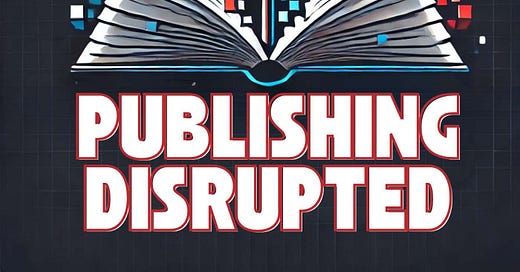As you know already, the publishing world has fundamentally shifted. You can’t still be writing like it’s 2005 and expect to be published. In our latest episode, we pull back the curtain on what’s changed about book development today—and why the old playbook of “authority from on high” is dead.
The Three-Legged Stool Is Still There (But One Leg Has Changed)
Every successful book proposal still needs three elements: Platform (your ability to reach readers), Concept (a current, but time-honored topic), and Craft (your “method” and ability to deliver the goods).
But what’s changed is that the crafting part must derive primarily an authentic voice emerging from personal process, rather than from presumed, or external authority.
“For the Bible Tells Me So” Won’t Work
We’re basically this anti-traditional, anti-establishment culture now. What we used to do was attach to these identity surrogates—whether that was a pastor or a church or biblical authority. Because of the massive shift in culture that’s happened, our power as authors now comes largely from how you communicate who you’ve uniquely become.
This shift helps explain why so many veteran authors of Christian publishing have gone independent. Readers aren't looking for another expert telling them what to think. They want to see how you figured it out, stumbled through it, and what you discovered that surprised even you.
An Old Formula in New Pants: Setup, Complication, Resolution
Instead of simply “here are my eight or ten points” approach, today’s successful nonfiction incorporates a personal story arc you can think of in the familiar three-act structure. The setup conveys context about where you started from and the big problem you faced. The complication is “how did things get worse before they got better? Or maybe “What are all the things didn’t work? And the resolution is what you discovered, which shouldn’t be neat and tidily resolved, but ambiguous and inclusive of complexity (authentic).
As David noted, this works both for your overall book structure and within individual chapters: We want to see real life-change in the books we’re working on.
The Memoir Question: When Is it Self-Help vs. Personal Story?
One of the most surprising parts of our conversation this time centered on the question of whether we’re talking about all nonfiction books needing to have a memoir or self-help angle. I’m not sure we answered the question, but we did agree the best books today seem to blur the line. Readers want to see your process, not just your conclusions. And they want the human behind the expertise, even more than the PhD or “Psychologist” or “clinical expert” title behind the page.
Sample Chapters Can Reveal a Lot
Given the primacy of the sample chapters in a book proposal, David asked a great question about what separates strong sample chapters from weak ones. Mick said weak sample chapters feel like early conceptual drafts. David said “Too many declarative statements.” Pulpit-pounding rather than exploration, and a single voice trying to convince.
Strong sample chapters tend to include the refined version of multiple perspectives brought to bear, and an open-handed rather than dogmatic tone. Overall, the evidence of deeper and more complex reasoning about the topic will give authors a firmer foundation than stating what readers should think or do.
Permission to Change Course (And Why You Should)
Authors should also note that somewhere about two-thirds through writing to your outline, the plan may start changing. And that’s not a bug—it’s a feature. The creative process never stops until you put the pen down. Most of the time, when an author changes direction from their original proposal, it’s a better book. Listen to that higher calling.
The conversation took a beautiful turn as we got into why contemplative writing may be coming more to the fore these days. Mick used the model of Annie Dillard’s Pilgrim at Tinker Creek to invite readers to slow down and notice. In life, it’s often important to stop and take the opportunity to notice what’s here and now, recognize that that is usually where the answers are found. Following an old script about how to write a book doesn’t ultimately serve us or readers. But we fight stopping or going off the path because we’ve got plans.
Chuck the plan. Readers want humbler, vulnerable reflection from fellow journeyers, even if they are a supposed “expert.” No one has all the answers. And authors need to simply share what they were blessed to find along the way.
The Bottom Line for Authors
Whether it’s on faith deconstruction, your escape from anxiety, bad parenting, or finding peace in nature, book development is a process. So show your process, not just your conclusions, and include the surprises and failures along your journey. Do be willing to change course as you write, and trust that your authenticity about that will win readers over more than any appeal to authority.
And remember: “The real writers are the ones doing it every day.”
The disruption is to how you appeal to readers as much as it’s to platforms and marketing tactics. The fundamental shift to how readers relate to authors and confer authority to their ideas has changed.
Have you lived what you’re sharing? And can you guide by simply walking alongside?
What resonates most with you from this discussion about our cultural disruption? Do you write from the authority of authenticity? We’d love to hear from you!










Share this post